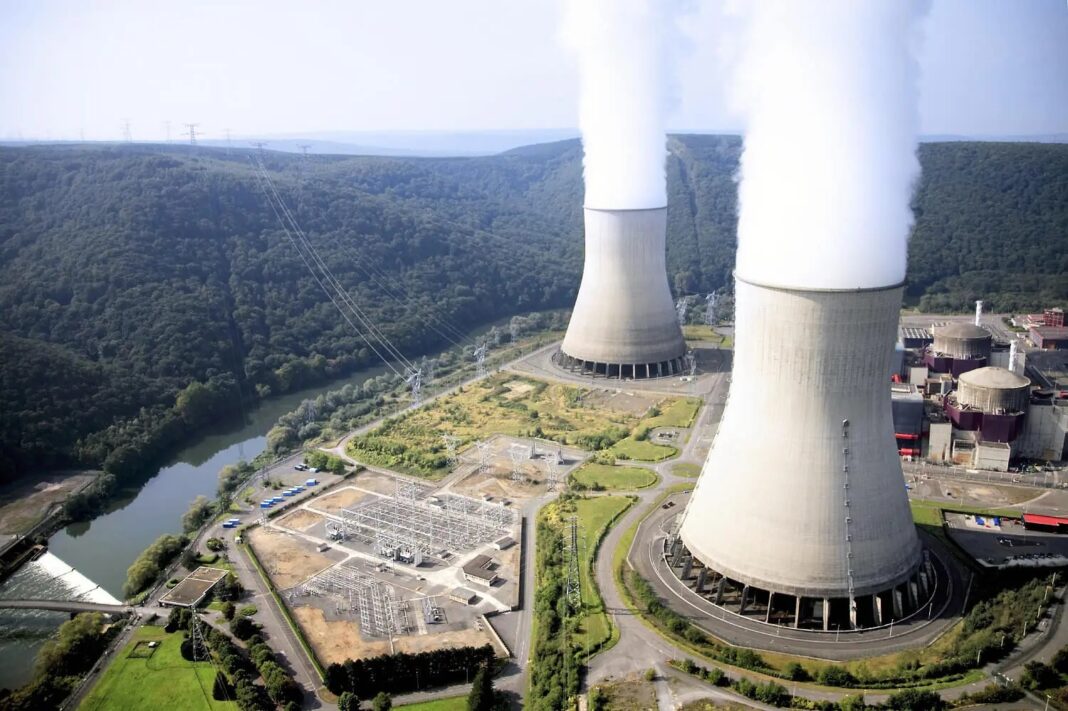France is set to present a new energy law prioritizing nuclear power over renewables as part of its commitment to achieving carbon neutrality by 2050.
The proposed text, scheduled to go before the cabinet next month and later submitted to lawmakers, underscores France’s determination to maintain “energy sovereignty” through a sustained reliance on nuclear energy.
France emerged as a nuclear power leader in the aftermath of the 1973 oil crisis, constructing over 50 nuclear power plants that supplied approximately two-thirds of the nation’s electricity.
However, with these ageing reactors and the delay in bringing new-generation nuclear power plants online, the French government faces a critical juncture in its energy transition strategy.
The proposed text affirms “the sustainable choice of using nuclear energy as a competitive and carbon-free” source of electricity. It outlines ambitious plans to construct between six and 14 new nuclear reactors to facilitate the transition to clean energy and meet climate change goals.
Yet, it notably lacks specific targets for renewable capacity, especially wind and solar, a departure from previous energy laws.
The Ministry of Energy Transition insists that the absence of explicit renewable targets in the draft does not imply a lack of commitment.
They argue that the government will set these targets independently in the future. However, environmental activists and experts remain unconvinced.
Arnaud Gosse, a lawyer specializing in environmental law, criticizes the proposed text as a “terrible step back.”
He emphasizes the importance of debating the share of different energy sources in overall production, asserting that focusing solely on quantifying nuclear power prioritizes it, potentially sidelining non-renewable energies.
“To reach its stated ambition of carbon neutrality by 2050, France will have to ramp up the production and share of renewables massively,” says Gosse, echoing concerns raised in various studies.
France had shown signs of progress in nuclear and renewable energy last year when it passed two bills to accelerate developments in both sectors.
However, the recent draft law has sparked disappointment as it omits specific targets for renewables.
Jules Nyssen, president of France’s Renewable Energies Union, expresses his astonishment, stating that the absence of renewable targets is unexpected and raises questions about the government’s commitment to a diversified energy portfolio.
Instead of setting clear objectives, the draft law promises to make efforts and uses formulations like “tending towards a reduction.”
For Anne Bringault, energy transition manager of the Climate Action Network, this represents a significant step backwards and is inconsistent with European objectives. She emphasizes that even if the objectives are raised later, the commitment to them appears weakened.
The draft law also raises eyebrows by dropping targets for reducing energy consumption through the renovation of buildings, a move that may have implications for France’s overall environmental sustainability goals.
As France grapples with the delicate balance between nuclear and renewable energy, the nation’s energy future hangs in the balance.
The public discourse surrounding this proposed law will likely shape the trajectory of France’s energy transition and influence the government’s approach to meeting its ambitious carbon neutrality target by 2050.
This article was created using automation technology and was thoroughly edited and fact-checked by one of our editorial staff members



